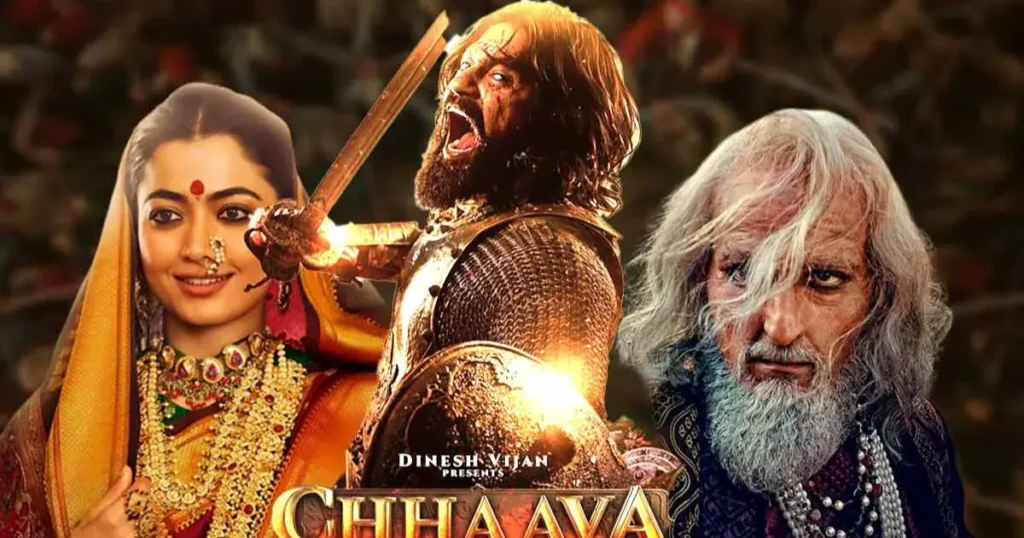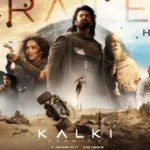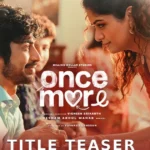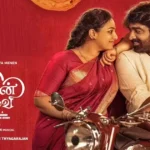Chhaava (transl. Lion Cub), a 2025 Indian Hindi-language historical action drama, has stormed into theaters, bringing to life the saga of Chhatrapati Sambhaji Maharaj, the fiery second ruler of the Maratha Empire. Directed by Laxman Utekar and produced by Dinesh Vijan under Maddock Films, this cinematic adaptation of Shivaji Sawant’s Marathi novel chhava movie review has sparked widespread buzz for its grand scale, intense performances, and gripping battle sequences. But does it live up to the hype? In this spoiler-free review, we dive into the film’s plot, cast performances, direction, screenplay, cinematography, music, VFX, strengths, weaknesses, audience and critics’ reactions, box office performance, and comparisons to other historical epics, culminating in a final verdict with a star rating.
chhava movie review details
|
Aspect |
Details |
|---|---|
|
Title |
Chhaava |
|
Release Date |
February 14, 2025 |
|
Director |
Laxman Utekar |
|
Producer |
Dinesh Vijan (Maddock Films) |
|
Cast |
Vicky Kaushal, Akshaye Khanna, Rashmika Mandanna, Ashutosh Rana, Divya Dutta, Diana Penty, Neil Bhoopalam, Vineet Kumar |
|
Genre |
Historical Action Drama |
|
Runtime |
161 minutes |
|
Music |
A. R. Rahman (Score and Soundtrack) |
|
Cinematography |
Saurabh Goswami |
|
Screenplay |
Laxman Utekar, Rishi Virmani, Kaustubh Savarkar, Unman Bankar, Omkar Mahajan |
|
VFX |
Assemblage Entertainment, ReDefine |
|
Box Office (Estimated) |
₹797.34 crore–₹809 crore (as of March 2025) |
|
IMDB Rating |
7.3/10 |
|
Rotten Tomatoes |
Mixed (Critic Score: ~60%, Audience Score: ~75%) |
Spoiler-Free Plot Overview
Chhaava transports viewers to the late 17th century, where the Maratha Empire faces a tumultuous period following the death of its founder, Chhatrapati Shivaji Maharaj, in 1680. The story centers on his son, Chhatrapati Sambhaji Maharaj (Vicky Kaushal), a fierce and courageous leader determined to uphold his father’s legacy of Swarajya (self-rule) against the relentless Mughal emperor Aurangzeb (Akshaye Khanna). The film kicks off with Sambhaji’s audacious raid on Burhanpur, a Mughal stronghold, setting the stage for a high-stakes conflict driven by valor, betrayal, and sacrifice.
Without revealing key twists, the narrative weaves a tale of resilience, family dynamics, and political intrigue. Sambhaji’s journey is not just about battlefield heroics but also about navigating internal conspiracies and personal struggles. The film balances action-packed sequences with emotional moments, exploring themes of duty, honor, and legacy. While it stays rooted in historical events, chhava movie review takes creative liberties, blending factual accounts with cinematic flair to create a larger-than-life portrayal of its titular hero.
Cast Performances
Vicky Kaushal as Chhatrapati Sambhaji Maharaj
Vicky Kaushal delivers a career-defining performance as Sambhaji Maharaj, embodying the warrior-king with raw intensity and emotional depth. His commanding screen presence, whether wielding a sword in battle or delivering powerful dialogues, makes every scene electrifying. Critics have lauded his ability to capture Sambhaji’s strength, vulnerability, and unwavering resolve, particularly in the film’s gut-wrenching climax. However, some reviews note that his dialogue delivery lacks the deep, resonant tone expected of a Maratha king, slightly diminishing the impact of certain scenes.
Akshaye Khanna as Aurangzeb
Akshaye Khanna’s portrayal of the Mughal emperor Aurangzeb is chilling and nuanced, stealing the show in several scenes despite limited dialogue. His ability to convey menace through subtle expressions and calculated restraint makes Aurangzeb a formidable antagonist. However, a few critics argue that his performance veers into caricature, overemphasizing the villainy to cater to the film’s narrative tone.
Rashmika Mandanna as Yesubai Bhonsale
Rashmika Mandanna, playing Sambhaji’s wife Yesubai, struggles to leave a mark. While she looks the part in meticulously designed Paithani sarees, her performance has drawn mixed reactions. Many critics and audiences find her acting flat and her Hindi diction jarring, with some labeling her miscast for a role requiring emotional heft. Her chemistry with Kaushal feels underdeveloped, making her scenes less impactful.
Supporting Cast
The ensemble cast, including Ashutosh Rana, Divya Dutta, Diana Penty, and Vineet Kumar, delivers solid performances. Ashutosh Rana provides reliable support as a Maratha loyalist, while Vineet Kumar shines in a pivotal role, particularly in a gripping confrontation with Kaushal. Divya Dutta’s subplot as Sambhaji’s stepmother feels undercooked, and Diana Penty’s role as Aurangzeb’s daughter is criticized for being historically questionable and narratively redundant.
Direction by Laxman Utekar
Laxman Utekar, known for smaller-scale films like Luka Chuppi and Mimi, steps into ambitious territory with chhava movie review, his grandest project yet. His direction shines in the second half, where the pacing picks up, and the emotional and action sequences converge to create a gripping experience. Utekar’s focus on family conflicts alongside battlefield heroics adds depth, but the first half suffers from sluggish pacing and a lack of focus. Critics note that Utekar’s attempt to balance historical authenticity with commercial appeal sometimes results in an uneven tone, with exaggerated action sequences undermining the film’s gravitas.
Screenplay and Dialogues
The screenplay, penned by a team of five writers, is both a strength and a weakness. It excels in crafting emotionally charged moments and patriotic dialogues that resonate with audiences, particularly in the second half. Scenes like Sambhaji’s confrontation with Akbar and the climactic sequence are standout examples of effective storytelling. However, the narrative feels disjointed at times, jumping between timelines and subplots, which can confuse viewers unfamiliar with Maratha history. The inclusion of unnecessary elements, like Aurangzeb’s daughter, and the omission of key historical events (e.g., the Battle of Ramsej) have drawn criticism for diluting the film’s impact. Dialogues by Rishi Virmani are powerful and clap-worthy but occasionally lean into melodrama, catering to populist sentiments.
Cinematography
Saurabh Goswami’s cinematography is a visual treat, capturing the grandeur of the Maratha and Mughal empires with sweeping shots of forts, lush landscapes, and intense battle scenes. The use of natural lighting and detailed set design transports viewers to the 17th century, with standout sequences like the Burhanpur raid and Sangameshwar Lake battle. However, some critics argue that the cinematography, while functional, lacks the striking innovation seen in films like Bajirao Mastani. Slow-motion shots, while dramatic, are overused, occasionally disrupting the narrative flow.
Music by A. R. Rahman
A. R. Rahman’s score and soundtrack are a mixed bag. Tracks like “chhava movie review Prithvi Theme” and “Jaane Tu” complement the film’s emotional and patriotic tone, with traditional instruments evoking a sense of nostalgia. However, the background score often feels underwhelming, lacking the intensity needed to elevate the Maratha spirit during battle scenes. Some reviews describe the music as overly loud, drowning out dialogues, while others find it misplaced in key moments. The lyrics by Irshad Kamil and Kshitij Patwardhan add emotional depth but fail to leave a lasting impression compared to Rahman’s work in films like Lagaan.
Visual Effects (VFX)
The VFX, handled by Assemblage Entertainment and ReDefine, are a high point, with photorealistic reconstructions of historical forts like Bhorwada and Aurangzeb’s Fort. The team’s use of photogrammetry to capture authentic textures and 8K rendering for large-scale shots ensures a seamless blend of digital and live-action elements. Battle sequences, enhanced with dynamic blood splatter, volumetric dust, and crowd simulations, convey the scale and chaos of 17th-century warfare. However, some scenes, like Sambhaji’s fight with a lion, feel exaggerated and detract from the film’s realism. Critics also point out minor inconsistencies in editing and VFX integration, particularly in the first half.
Strengths
-
Vicky Kaushal’s Performance: Kaushal’s portrayal of Sambhaji Maharaj is a tour de force, blending physical prowess with emotional nuance, making him the heart of the film.
-
Climactic Impact: The second half, particularly the climax, is emotionally gripping and visually spectacular, leaving a lasting impression.
-
Production Design and Costumes: The meticulous attention to period-accurate costumes, including Paithani sarees and restored 500-year-old borders, adds authenticity. The set design by Subrata Chakraborty and Amit Ray recreates the Maratha era with stunning detail.
-
Action Sequences: The battle scenes, choreographed by Parvez Shaikh and Todor Lazarov, are intense and well-executed, showcasing Maratha warfare tactics.
Weaknesses
-
Pacing Issues: The first half is slow and disjointed, with too many subplots and timeline shifts that hinder narrative coherence.
-
Historical Inaccuracies: The film takes liberties with historical events, omitting key battles and figures like Santaji Ghorpade, which has sparked controversy among history enthusiasts.
-
Rashmika Mandanna’s Casting: Her performance feels out of place, with critics and audiences citing her lack of emotional depth and inconsistent diction.
-
Underwhelming Music: A. R. Rahman’s score, while decent, lacks the intensity and memorability expected from a historical epic.
Audience and Critics’ Reactions
Audience Reactions
Chhaava has resonated strongly with audiences, particularly in Maharashtra, where Sambhaji Maharaj is a revered figure. Social media platforms like X are abuzz with praise for Vicky Kaushal’s “towering” performance and the film’s patriotic fervor. Fans have called the climax “heart-wrenching” and “goosebump-inducing,” with many appreciating the film’s visual grandeur and action sequences. However, some viewers have criticized the slow first half, Rashmika’s casting, and the excessive violence in the climax, which they found disturbing. Posts on X also highlight frustration with the film’s “us vs. them” narrative, accusing it of pandering to nationalist sentiments.
Critics’ Reactions
Critics have offered mixed reviews, with ratings ranging from 2.5 to 4.5 stars. Taran Adarsh gave Chhaava a glowing 4.5/5, calling it “spectacular” and praising Kaushal’s “award-worthy” performance. Bollywood Hungama rated it 4/5, lauding its “gripping historical spectacle” but noting pacing issues. Conversely, NDTV gave it 2.5/5, criticizing its lack of historical depth and overreliance on “heroic grandstanding.” Rotten Tomatoes reflects this divide, with a ~60% critic score and a ~75% audience score, indicating stronger public appeal than critical acclaim. Some critics compare Chhaava unfavorably to Tanhaji and Bajirao Mastani, citing a lack of narrative depth and originality.
Box Office Buzz
Chhaava has made a significant impact at the box office, grossing an estimated ₹797.34 crore to ₹809 crore globally by March 2025, making it the highest-grossing Indian and Hindi film of the year. It opened with ₹13.79 crore from advance bookings and an estimated ₹20–25 crore on its first day, driven by strong word-of-mouth and Valentine’s Day release hype. The film’s success is attributed to its patriotic appeal, Kaushal’s star power, and screenings in premium formats like IMAX. However, its performance in non-Marathi-speaking regions has been less consistent, with some audiences finding it too regionally focused.
Comparisons to Other Historical Epics
chhava movie review invites comparisons to other Bollywood historical dramas like Tanhaji: The Unsung Warrior (2020), Bajirao Mastani (2015), and Padmaavat (2018). Like Tanhaji, it focuses on Maratha valor but lacks the narrative polish and emotional resonance of Ajay Devgn’s film. Compared to Sanjay Leela Bhansali’s opulent Bajirao Mastani, Chhaava falls short in visual innovation and character depth, though it matches its action intensity. Critics note that Chhaava’s screenplay feels derivative, borrowing elements from these films without offering a fresh perspective. Its “us vs. them” framing also draws parallels to Padmaavat, but it lacks the layered storytelling of Bhansali’s epic.
Final Verdict
chhava movie review is a visually stunning and emotionally charged historical drama that shines brightest when Vicky Kaushal is on screen. His powerhouse performance, coupled with a gripping climax and impressive production values, makes it a compelling watch for fans of historical epics and Maratha history. However, its sluggish first half, historical inaccuracies, and uneven screenplay prevent it from reaching the heights of classics like Bajirao Mastani. Rashmika Mandanna’s miscasting and A. R. Rahman’s underwhelming score further hold it back. While it succeeds as a patriotic crowd-pleaser, it struggles to balance authenticity with commercial appeal, leaving some viewers wanting more depth.






